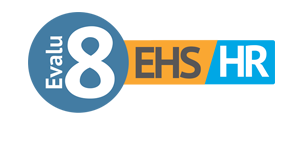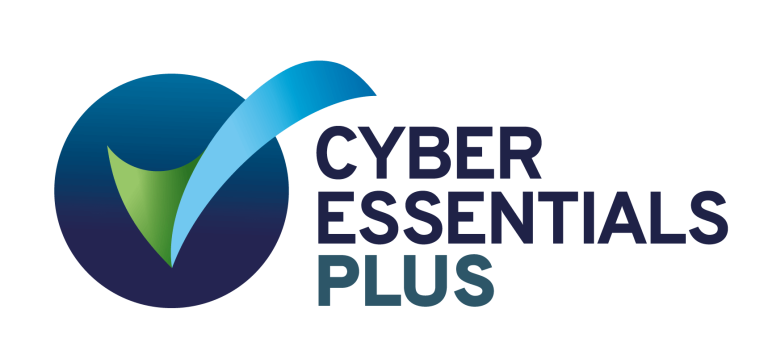If you’re new to the world of Human Resource Management (HRM) or a business owner considering hiring your first HR professional, you might be wondering, “What exactly does HR cover?” Understanding the scope of HRM is crucial because it encompasses a wide range of functions that are essential for running a successful business in the UK. In this guide, we’ll explore the key areas that HR covers, providing you with a clear understanding of how HR can support your business.
What Is Human Resource Management (HRM)?
Defining Human Resource Management
At its core, Human Resource Management (HRM) is all about managing people within an organisation. It involves recruiting, hiring, training, and supporting employees to ensure that the business can operate effectively. But HRM goes beyond just hiring and firing; it’s about fostering a positive work environment, developing talent, and ensuring compliance with employment laws.
The Role of HR in a Business
HR plays a pivotal role in shaping the culture of an organisation, driving employee engagement, and ultimately contributing to the company’s success. Whether you’re running a small startup or a large corporation, having a strong HR function can make a significant difference in how your business performs.
Why HRM Is Important
You might be wondering why HRM is so critical. The truth is, people are the backbone of any business. When managed well, your employees can become your greatest asset, driving innovation, productivity, and growth. However, poor HR practices can lead to high turnover, low morale, and even legal issues.
Supporting Business Growth
As your business grows, the complexity of managing people increases. HRM helps to standardise processes, ensure compliance with regulations, and provide the support that employees need to thrive. By investing in HR, you’re investing in the long-term success of your business.
The Key Areas of Human Resource Management
Recruitment and Selection
One of the most visible aspects of HRM is recruitment and selection. This is where HR professionals work to attract and hire the right talent for your business.
Crafting Job Descriptions
The process starts with understanding the needs of the business and crafting job descriptions that clearly outline the responsibilities, qualifications, and expectations for the role. A well-written job description is crucial for attracting suitable candidates.
Interviewing and Selection
Once candidates apply, HR manages the interview and selection process. This includes screening applications, conducting interviews, and making offers to the right candidates. HR also ensures that the recruitment process is fair and free from discrimination, adhering to employment laws.
Training and Development
After hiring, the next step is training and development. This area of HRM focuses on equipping employees with the skills and knowledge they need to perform their jobs effectively.
Onboarding New Employees
Onboarding is the process of integrating new employees into the company. This includes not only training on job-specific tasks but also introducing them to the company culture, policies, and procedures. A strong onboarding programme helps new hires feel welcomed and prepared to succeed in their roles.
Ongoing Training and Professional Development
HR also oversees ongoing training and professional development opportunities. Whether it’s technical training, leadership development, or soft skills workshops, continuous learning is essential for employee growth and retention.
Performance Management
Performance management is another critical aspect of HRM. This involves setting clear expectations for employees, monitoring their performance, and providing feedback to help them improve.
Setting Objectives and Key Results (OKRs)
HR works with managers to establish Objectives and Key Results (OKRs) or similar performance goals. These objectives align with the company’s strategic goals and provide employees with clear targets to aim for.
Regular Performance Reviews
Performance reviews are a key tool in performance management. HR coordinates these reviews, ensuring that they are conducted fairly and constructively. The goal is to provide employees with feedback that helps them grow and contribute more effectively to the organisation.
Employee Relations
Employee relations refers to the efforts HR makes to maintain a positive relationship between the employer and the employees. This is about creating a work environment where employees feel valued, respected, and motivated.
Handling Grievances and Disciplinary Issues
One of the more challenging aspects of HRM is handling grievances and disciplinary issues. HR must ensure that all complaints are addressed promptly and fairly, and that disciplinary actions are carried out in accordance with company policy and employment law.
Promoting a Positive Work Environment
Beyond dealing with issues, HR is also responsible for fostering a positive work environment. This includes initiatives like employee engagement programmes, recognition schemes, and efforts to build a strong company culture.
Compensation and Benefits
A well-structured compensation and benefits programme is essential for attracting and retaining talent. HRM is responsible for designing and managing these programmes to ensure that employees are fairly compensated for their work.
Salary and Wages
HR sets salary bands and ensures that employees are paid competitively based on their role, experience, and performance. This also involves conducting salary reviews and benchmarking against industry standards.
Employee Benefits
In addition to salary, HR manages employee benefits such as health insurance, pensions, paid leave, and other perks. A comprehensive benefits package is a key factor in employee satisfaction and retention.
Compliance with Employment Law
Compliance with employment law is one of the most critical functions of HRM. The UK has a complex legal framework governing employment, and HR is responsible for ensuring that the company adheres to these laws.
Understanding Employment Legislation
HR professionals must be well-versed in employment legislation, including laws related to discrimination, working hours, minimum wage, and health and safety. They ensure that company policies and practices are compliant with the law.
Handling Contracts and Legal Documentation
HR is also responsible for preparing and managing employment contracts, ensuring that all legal requirements are met. This includes keeping up-to-date records of employee information and maintaining confidentiality.
The Strategic Role of HR in Business
HR as a Business Partner
HRM isn’t just about administrative tasks; it plays a strategic role in the success of the business. HR professionals work closely with senior leadership to align HR strategies with business goals.
Workforce Planning
HR is involved in workforce planning, which involves forecasting the company’s future staffing needs and developing strategies to meet those needs. This ensures that the business has the right people in the right roles at the right time.
Driving Organisational Change
HR also plays a key role in driving organisational change. Whether it’s managing a merger, implementing new technology, or rolling out a new company initiative, HR ensures that employees are supported throughout the change process.
Change Management
Effective change management requires clear communication, training, and support. HR professionals are skilled in managing the human side of change, helping to minimise disruption and maintain morale.
Embracing the Full Scope of HRM
Understanding the full scope of Human Resource Management (HRM) is essential for anyone new to HR or considering their first HR hire. From recruitment to training, performance management to compliance, HR touches every aspect of the employee experience and plays a crucial role in the success of a business.
As a manager, business owner, or new HR professional, embracing the full scope of HRM will help you build a strong, motivated workforce that drives your business forward. Remember, HR is not just about managing people—it’s about creating an environment where people can thrive and contribute to the success of the organisation.
Q&As Around The Scope Of HR
What are the main responsibilities of Human Resource Management (HRM)?
HRM involves managing all aspects of an organisation’s workforce, including recruitment, training, performance management, employee relations, compensation and benefits, and compliance with employment law. HR also plays a strategic role in workforce planning and organisational change.
Why is training and development important in HRM?
Training and development are crucial because they equip employees with the skills and knowledge they need to perform their jobs effectively. Continuous learning opportunities also help employees grow professionally, which can lead to higher job satisfaction and retention.
How does HR manage employee performance?
HR manages employee performance through performance management processes, including setting clear goals (such as OKRs), conducting regular performance reviews, and providing feedback. The aim is to help employees improve and contribute more effectively to the organisation.
What role does HR play in ensuring compliance with employment law?
HR is responsible for ensuring that the company complies with all relevant employment laws, including those related to discrimination, working hours, minimum wage, and health and safety. This includes preparing contracts, maintaining records, and ensuring that company policies are legally compliant.
How does HR contribute to the strategic success of a business?
HR contributes to the strategic success of a business by aligning HR strategies with business goals, participating in workforce planning, and driving organisational change. HR professionals work closely with leadership to ensure that the company’s human resources support its long-term objectives.


